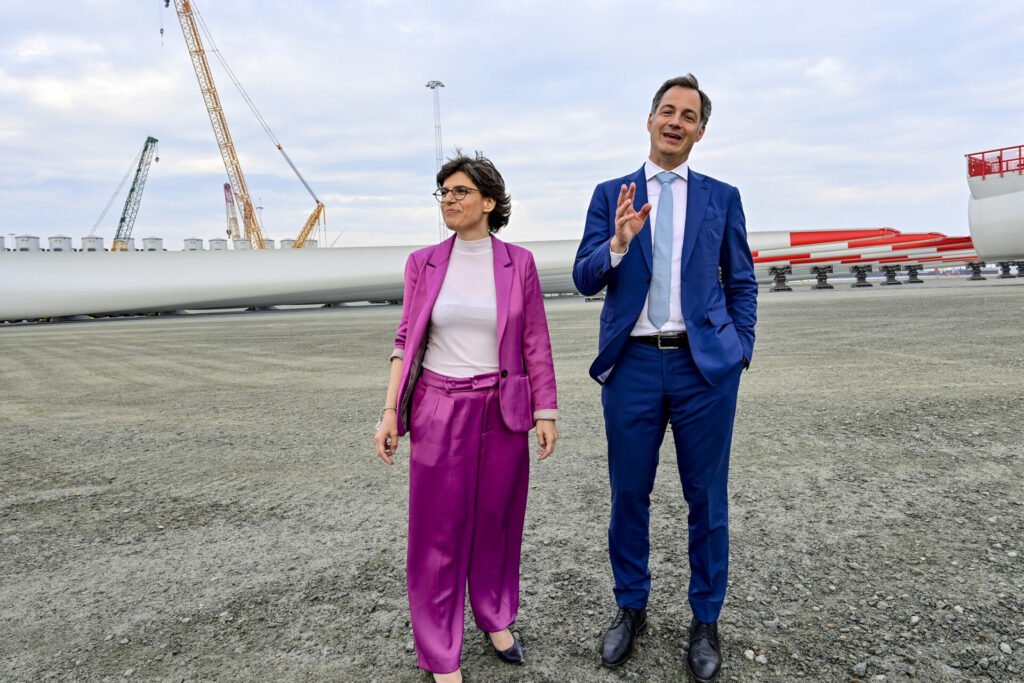As the energy situation remains serious and Russia's war in Ukraine continues, Federal Energy Minister Tinne Van der Straeten announced her 'Winter plan' to ensure Belgium's energy supply after the summer, during a press conference on Friday.
The effects of Russia's war in Ukraine are being felt throughout Europe, especially in energy and, as a result, in prices. The war shows how vulnerable the European economy is, due to its heavy dependence on imports of Russian fossil fuels.
"Our security of supply will not be compromised, but we stand ready to show solidarity with other European countries if necessary," said Van der Straeten. "That is why we are making additional preparations now."
Strong and unique position in Europe
The war in Ukraine is causing a risk of energy shortage in Europe and emergency plans have been announced in countries like the Netherlands, Germany and France. In Belgium, too, a number of companies are worried about the coming winter.
"I understand the concerns of citizens and businesses. Next winter will be a difficult time for Europe," said Van der Straeten. "Belgium has a unique position in Europe when it comes to energy and has many assets that enable us to ensure our own security of supply, even in winter."
Related News
- Flemish Energy Minister calls for nuclear reactor extensions
- Belgian gas consumption drops 18.5% but 'situation remains extremely serious'
- Microwaving, cycling and unplugging: How Belgium wants people to save energy
Belgium has a number of advantages over its neighbours: it is much less dependent on Russian gas than the Netherlands and Germany, and Belgium's electricity production does not have the problems that France has at present. "Additionally, since last winter we have been arming ourselves to ensure the security of supply."
Belgium's assets are a direct supply of gas from Norway and the United Kingdom, an LNG terminal in Zeebrugge that can import gas from all over the world and a strategic gas reserve that will be filled in time for winter thanks to a relaxation of the auction for the gas reserve in Loenhout.
Thanks to this unique position, Belgium can today export gas to Germany and electricity to France, Van der Straeten underlined. However, to secure the energy supply and to be prepared for the worst events in Belgium and Europe, she presented her "Winter plan."
This plan, with both short-term and long-term measures, complements the measures that were taken in recent years and strengthened in recent months since the outbreak of the war in Ukraine.
Short-term measures:
With regard to gas supply, the dialogue with Norway will be strengthened. The emergency gas plan was first updated in March and will be refined by September.
With regard to electricity supply, cooperation is being established with France to monitor the uncertainty related to the French nuclear park. Van der Straeten has also asked all electricity producers to postpone planned winter maintenance until spring.
The plan also involves cooperation between the levels of government to raise awareness of energy saving among households and businesses. In this context, the federal government will set an example by implementing energy savings in federal buildings.
Long-term measures:
In the long term, Van der Straeten wants to strengthen Belgium as a European energy hub by increasing the capacity of the LNG terminal in Zeebrugge and the transit capacity to Germany.
Additionally, she wants to strengthen the supply of electricity in the coming winters, and to reduce dependence on fossil fuels by accelerating the energy transition. In time, this should all lead to a reform of the European energy market.
"The question for this winter is not whether we will have enough energy, the question is whether we can show maximum solidarity with our neighbours," Van der Straeten said. "That is why we are taking additional measures now. We are prepared for all scenarios."

